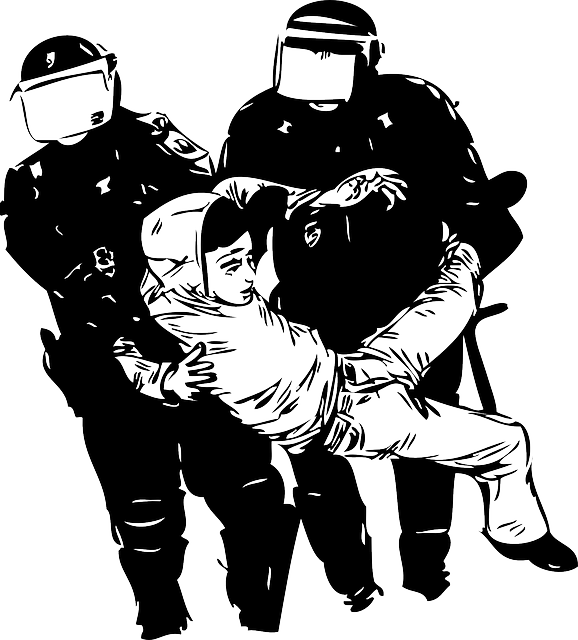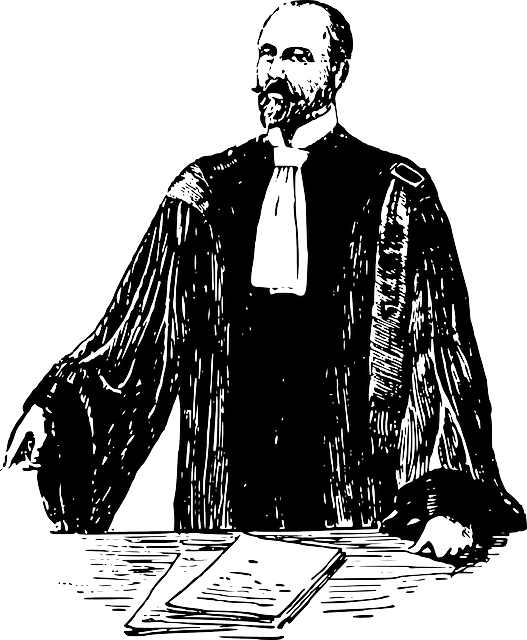Prior convictions heavily influence sentencing outcomes in public corruption cases, shaping evidence, prosecution strategies, and judge decisions. Past offenses, considered during investigation and sentencing, can enhance penalties for repeat offenders or offer leniency to first-time misdemeanants. Skilled defense attorneys navigate these challenges by presenting compelling arguments, aiming for positive outcomes through jury trials to ensure fair sentencing based on offense severity, personal circumstances, and cooperation with authorities.
“Public corruption charges pose unique challenges in the legal landscape, with prior convictions playing a pivotal role in sentencing outcomes. This article delves into the intricate web of legal frameworks governing public corruption cases and explores how previous offenses influence subsequent sentences. Understanding the weight given to prior convictions is essential for both defendants and legal strategists alike. We examine real-world case studies to illustrate the impact, providing insights into effective mitigation strategies within the sentencing process.”
- Understanding Public Corruption Charges: Legal Framework
- Prior Convictions: Weighting Evidence Against Defendants
- Impact on Sentencing: Guidelines and Discretionary Decisions
- Case Studies: When Past Offenses Influence Outcomes
- Strategies for Mitigation: Navigating the Sentencing Process
Understanding Public Corruption Charges: Legal Framework

Public corruption charges are a serious matter, and understanding the legal framework behind them is crucial. These cases typically involve allegations of misuse of power, bribery, or fraud by public officials. The legal system has established guidelines to ensure fairness throughout all stages of the investigative and enforcement process. One key aspect that can significantly impact the outcome is the defendant’s prior convictions.
The presence or absence of prior crimes can heavily influence sentencing. In many jurisdictions, a history of corruption-related offenses or other serious misdemeanors may lead to harsher penalties. Conversely, first-time offenders might receive more lenient sentences or even a complete dismissal of all charges, depending on the circumstances and the discretion of the judge. This balance between punishment and rehabilitation is a delicate one, aiming to deter future misconduct while considering the unique context of each case.
Prior Convictions: Weighting Evidence Against Defendants

Prior convictions play a significant role in shaping the evidence against defendants facing public corruption charges. In many jurisdictions, a defendant’s criminal history is considered during all stages of the investigative and enforcement process. This information can heavily influence how prosecutors construct their case, as prior convictions are often used to strengthen arguments for guilt and to increase sentencing outcomes. The weight given to previous offenses varies based on their nature, severity, and recency, with more recent or serious crimes carrying more weight.
Understanding the impact of prior convictions is crucial for anyone involved in white-collar defense strategies. While avoiding indictment is a primary goal for defendants, prosecutors may use prior convictions as evidence of a pattern of behavior, making it essential to have robust legal representation that can navigate these complexities. This strategic approach ensures fairness in the justice system and underscores the importance of how prior convictions affect sentencing outcomes.
Impact on Sentencing: Guidelines and Discretionary Decisions

Public corruption cases often hinge on complex sentencing guidelines, which can significantly impact the outcome for those accused. When a defendant has prior convictions, it affects both mandatory and discretionary sentencing decisions. Judges must consider the severity and nature of past offenses when determining an appropriate sentence for current charges. This history can lead to harsher penalties, especially for repeat offenders, as the court may opt for more stringent measures to deter further illicit behavior.
A skilled defense attorney can navigate these challenges by presenting a compelling argument that highlights the client’s reform or extenuating circumstances. A successful defense strategy might involve emphasizing previous convictions and their impact on the current case while aiming for winning challenging defense verdicts through jury trials, ensuring his clients receive fair and just sentencing outcomes.
Case Studies: When Past Offenses Influence Outcomes

In the realm of public corruption charges, past offenses play a significant role in shaping sentencing outcomes. Numerous case studies across the country highlight this dynamic. For instance, individuals accused of corrupt practices often face stiffer penalties when they have prior convictions for similar crimes. This trend is observed not just in cases involving corporate and individual clients but also across diverse business sectors.
Judges often consider prior misconduct as a indicator of recurring patterns and a potential threat to societal integrity. As a result, previous convictions can lead to enhanced sentences, fines, or even more stringent conditions for probation. This approach aims to deter future corrupt behavior and underscore the gravity of the offense, reflecting the principle that past transgressions significantly influence the respective business’s reputation and the overall legal consequences.
Strategies for Mitigation: Navigating the Sentencing Process

When facing public corruption charges, understanding the sentencing process is crucial. One key aspect to consider is the impact of prior convictions. A defendant’s criminal history plays a significant role in determining their sentence. If an individual has previous convictions for similar offenses, the court will likely impose a harsher penalty, as it reflects a pattern of behavior and a higher risk of reoffending. This is why having a robust general criminal defense strategy becomes even more vital—it can mitigate the impact of these prior convictions.
The sentencing process involves navigating a series of complex factors, including the severity of the current offense, the defendant’s personal circumstances, and their level of cooperation with authorities. In cases where the accused agrees to cooperate, providing valuable insights or testimony against co-conspirators, courts may offer reduced sentences or even dismiss certain charges. This strategic approach, often employed in jury trials, can significantly differ from non-jury dispositions, focusing more on negotiating a plea bargain that satisfies both the prosecution and the philanthropic and political communities’ interests.
Public corruption charges are taken seriously, and understanding the legal framework behind them is crucial. The weight given to prior convictions in sentencing plays a significant role in determining outcomes. This article has explored how previous offenses influence decisions, from evidence evaluation to discretionary sentencing powers. By examining case studies, we’ve seen that past misconduct can impact verdicts considerably. However, strategies exist for mitigating sentences, allowing individuals to navigate the process effectively and potentially reduce the impact of prior convictions. Ultimately, awareness of these legal nuances is essential for all involved in public corruption cases.






